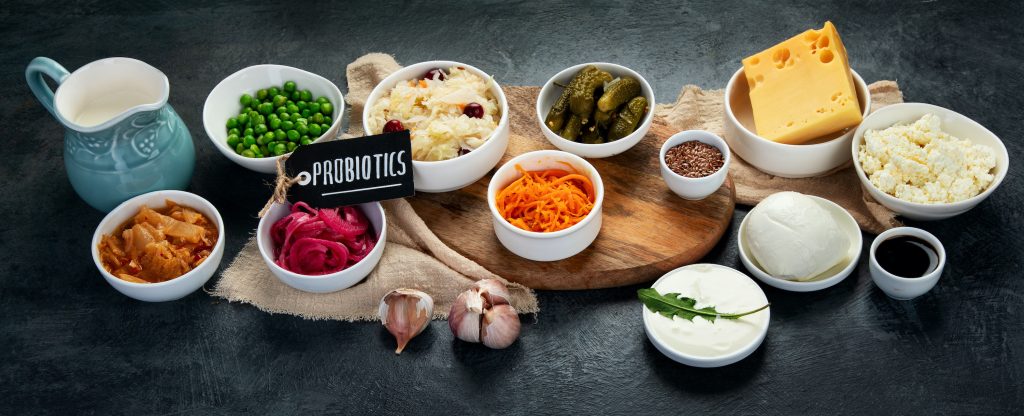
Supervisor: MARIE GOHDA
Registered dietitian, Japanese fermentation and preventive medicine specialist > more imformation
In recent years, the connection between gut health and mental health has gained remarkable attention. From scientific research to personal stories, more and more people are discovering how what they eat impacts not only their digestion but also their emotions, focus, and overall well-being.
Imagine waking up feeling anxious or tired—but after weeks of improving your diet with gut-friendly foods, your mood stabilizes and your energy increases. This isn’t a fantasy. It’s a growing reality for many, especially those who turn to Japanese fermented foods like miso, natto, and rice vinegar.
In this article, you’ll learn:
- How gut health and mental health are connected
- Why Japanese fermented foods are uniquely beneficial
- A sample day of eating inspired by Japanese traditions
- How to build gut health into your everyday routine
- Where to go next if you’re ready to dive deeper
Let’s take a look!
What’s the Link Between Gut Health and Mental Health?
The gut and brain communicate through what’s known as the gut-brain axis—a two-way system involving nerves, hormones, and microbes. This means your gut can influence your mood, and your mood can affect your gut.
Recent research shows that people with poor gut health are more likely to experience issues like anxiety, depression, and chronic fatigue. Why? Because about 90% of serotonin—your “feel-good” hormone—is produced in the gut. When your gut is inflamed or out of balance, it may affect your brain as well.
That’s why gut health and mental health are not separate topics anymore. They’re two sides of the same wellness coin.
How Japanese Fermented Foods Support Gut Health and Mental Health

Japanese cuisine has a long tradition of using plant-based fermented foods. These foods are not only rich in beneficial bacteria (probiotics) but are also naturally low in saturated fat and high in umami, making them ideal for gut and mental wellness.
Probiotic Power: Miso, Natto, Rice Vinegar
Japan’s rich tradition of fermented foods includes ingredients like miso, natto, and rice vinegar, each made through unique fermentation processes that create distinctive flavors and textures.
- Miso, a fermented soybean paste, is known to contain naturally occurring lactic acid bacteria as a result of its fermentation. These bacteria are thought to play a role in supporting a healthy gut environment, although the number of live bacteria can vary depending on how the miso is processed and used—for example, heating miso may reduce the number of active microorganisms.
- Natto is a particularly unique Japanese food made by fermenting soybeans with Bacillus subtilis var. natto. The fermentation process gives natto its strong aroma and sticky texture. Natto is often highlighted for its traditional association with gut-friendly eating habits in Japan, and Bacillus subtilis is being studied for its potential to help maintain a balanced intestinal flora.
- Rice vinegar, on the other hand, is produced through the acetic acid fermentation of rice. This process involves acetic acid bacteria, which are known for their role in creating the vinegar’s mild sourness and preserving qualities.
Each of these ingredients is an example of how traditional Japanese foods naturally integrate fermented elements that may gently support digestive well-being as part of a balanced diet. While more scientific studies are ongoing, these ingredients have been consumed for centuries in Japan and remain staples of gut-conscious culinary practices today.
Umami: Why Koji Is a Japanese Superfood
Koji is the fermentation starter used in many Japanese staples, from miso to soy sauce. Unlike animal-based fermented foods, koji-based products are plant-based, meaning they contain less saturated fat and are easier on the digestive system.
More than that, they are loaded with umami, the fifth basic taste. Umami-rich foods can make low-sugar and low-fat meals taste satisfying, helping you eat healthier without feeling deprived. This makes them an excellent choice for those working on both gut health and mental health.
A Japanese Day of Eating for Gut Health and Mental Health
Here’s what a typical gut-friendly day inspired by Japanese traditions might look like:
- Breakfast: Warm miso soup with tofu and wakame, plus a bowl of brown rice
- Lunch: Grilled fish with pickled vegetables (tsukemono) and a side of natto
- Snack: A small glass of amazake (a sweet, fermented rice drink)
- Dinner: Stir-fried vegetables with soy sause and a splash of rice vinegar, miso soup again for comfort
These meals are light yet satisfying, and they consistently support digestion and mental clarity throughout the day.
How to Make Gut Health a Habit for Mental Health

Gut-friendly living isn’t about a one-time cleanse—it’s about daily choices. Here’s how to make it sustainable:
- Start with one meal a day: Add miso soup or fermented pickles to your existing meals.
- Meal prep with fermented seasonings: Miso, soy sauce, and rice vinegar are versatile and can transform any dish.
- Track your mood: Keep a journal of what you eat and how you feel afterward. Patterns often emerge.
By making fermented foods a daily habit, you build a gut-friendly foundation that supports your mental health over time.
Learn More About Gut Health and Mental Health with Fermentation
If this article has sparked your curiosity, there’s so much more to explore. In Japan, fermentation isn’t just about food—it’s a way of life. And now, you can experience it firsthand.
Fermented Cuisine Study Program in Japan
Dive deep into Japanese culinary traditions and learn from fermentation masters. Whether you’re a food professional or just passionate about gut-friendly cuisine, our short-term programs give you hands-on experience in the birthplace of miso, natto, and more.
One-Day Fermentation Cooking Workshops
Don’t have much time? Join us for a one-day cooking class to make your own fermented foods and learn how to use them. You can also join our free newsletter to get tips, and insights on Japanese fermentation delivered irregularly. Sign up and take your first step toward better gut and mental wellness.
👉 Sign up for the newsletter
” 耀 Hikari ” – wellness
👉 Learn more about the study programs
Summary: Heal Your Gut, Nurture Your Mind
Your gut is more than a digestive organ—it’s your second brain. By supporting it with the right foods, especially the probiotic-rich, plant-based, umami-packed options from Japanese tradition, you’re also supporting your mental health.
From miso and natto to koji and vinegar, Japanese fermented foods offer an easy, delicious, and sustainable path toward well-being. Are you ready to nurture your mind by healing your gut?

No responses yet